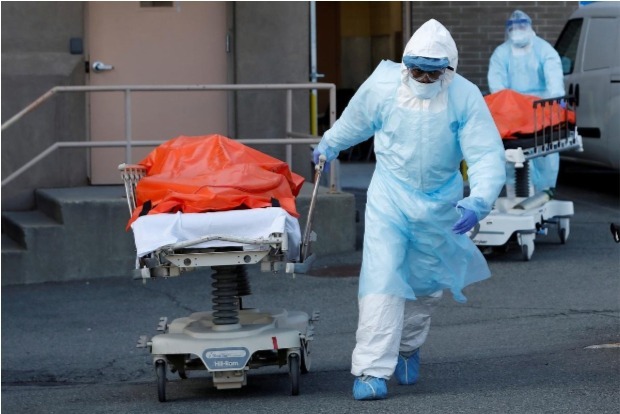Begin typing your search...
Contemplating death in a year when it feels closer
As a reporter, I’ve told the stories of countless tragedies over the last 20 years: mass murders, murder trials, tornadoes where people lost everything, any number of horrific crimes and dramatic hardships.

Chennai
I’m struggling. And I have been for awhile. A lot of us are. There’s a pandemic going on, and we are all isolated from each other. There’s a recession looming, maybe even a depression. And a divisive election, no matter which side you support. But it feels like so much more. None of my emotions seem to want to hide anymore. There’s anger, irritation, sadness. Muting life with Netflix has an upside-down reaction for me: I’m crying at happy scenes and sobbing over suspenseful or stressful scenes. I wake at night with bouts of anxiety.
As a reporter, I’ve told the stories of countless tragedies over the last 20 years: mass murders, murder trials, tornadoes where people lost everything, any number of horrific crimes and dramatic hardships. Why does this feel so different? It finally dawned on me: Death seems so close to everyone, more than I can ever remember. In the US, for many, it hasn’t been quite this way for a really long time.
So far, more than 225,000 people have died in the United States from the coronavirus or complications, according to Johns Hopkins University. On the entire planet, more than 45 million have been infected and more than 1.1 million are dead. All that pain and suffering. All those individual stories. And right now, with the numbers of infected soaring in Wisconsin, where I live, my anxiety skyrockets. Physicians are dealing with anxiety, some for the first time, says Joan Anzia, psychiatrist and professor at Northwestern University Feinberg School of Medicine. She often counsels those in the health care field and says this sense of mortality is even hitting them.
“It’s been decades since physicians have had to endanger their own lives and put their own life at risk just by going to work,” she tells me when I call her. The last time a life-threatening health crisis of this scale engulfed American society was early in the last century: the 1918 flu pandemic. Less widespread was polio, before a vaccine emerged in the 1950s. Medical advancements though, have pushed death away, made it feel less familiar. Babies don’t die as regularly. At one point before the funeral industry took off in the 19th century, funerals were held in the dead person’s house — with the body present. Death, when it came, was nearer, less alien. How did that change? According to Genevieve Keeney, CEO of the National Museum of Funeral History in Houston, the rise of the funeral industry changed the location of what happened after death and produced a disconnection. But more to blame, she believes, is the constant, often graphic portrayals of death in entertainment and news — making it a commodity for storytelling.
“We lost its meaning of what it’s trying to say,” she says. For me, being in the news business, I relate closely with stories of COVID and death because I have seen dying firsthand throughout my career. Death is inevitable. So why does this feel so different? Maybe the answer lies in American culture and history. I asked Anita Hanning, who studies culture and how it deals with death and dying. “The coronavirus is really pushing our noses into the fact of our mortality. And that is a truth that is always present, but that not many of us are choosing to engage with on a regular basis,” says Hanning, an associate professor of anthropology at Brandeis University in Massachusetts. Today’s unfamiliarity and lack of fear could help explain why some people don’t wear masks or distance to mitigate risk for others. It’s been a trigger for me because they represent an increased risk of catching the virus. And in my head, it’s very catchable.
I’ve been through enough life changes to know that it alters your perspective like that. But I know I haven’t settled into a great place with death. And I am guilty of expecting too much from medicine. I will choose to hold onto that, in light of my new self-knowledge. Death may be inevitable, but allowing it to conquer my life is not.
Carrie Antlfinger is a video journalist, writer and photographer with AP
Associated Press
Visit news.dtnext.in to explore our interactive epaper!
Download the DT Next app for more exciting features!
Click here for iOS
Click here for Android
Next Story



